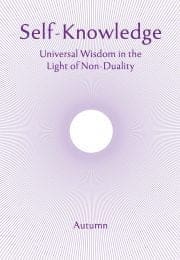A Reading of the Quran from the Non-dual Perspective
The teachings and practices of all mystical traditions involve a special relationship. It is a relationship with one that symbolizes and forms a connection with the Reality that transcends our minds and senses. This relationship develops through affinity and love towards unity and identity. Christian mysticism begins with a recognition of the special qualities of Christ, and the seeker is drawn through love towards union with Christ. So too does the Buddhist gravitate to the Buddha. And thus the inner enquirer proceeds through forms to the universal.
The same essential principle applies, as it must, in Islam also. Islamic mysticism has a particular quality, which to some extent it shares with Jewish mysticism, in that the embodiment of higher truth which first draws the heart and mind of the seeker, is not a person, but a book, a written text—what is known to us as the Quran.
Perhaps there is some connection between this and the fact that Islam has produced an extraordinary wealth of mystical poetry, including that of Rumi, and the poet known to us as Hafiz. The name Hafiz means one who has memorised the Quran, and it seems that the poet we know by that name did so at an early age. These mystical writers and teachers are of great interest in themselves, and much of the literature about Islamic mysticism focuses on them. Here the intention is to try to keep the focus on the Quran itself; to consider what the Quran has meant to mystics who have grown up within Islam and what it may mean to all enquirers.
Subscribe or enrol for free guest access to read all of this article and Self-Knowledge online.
Already subscribed or enrolled? Log in:


